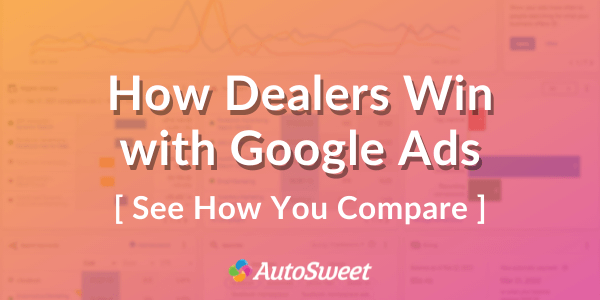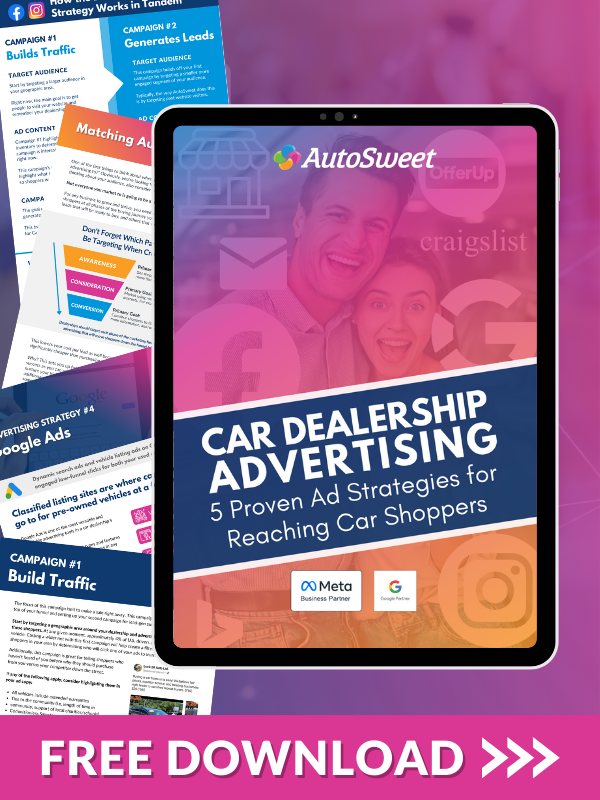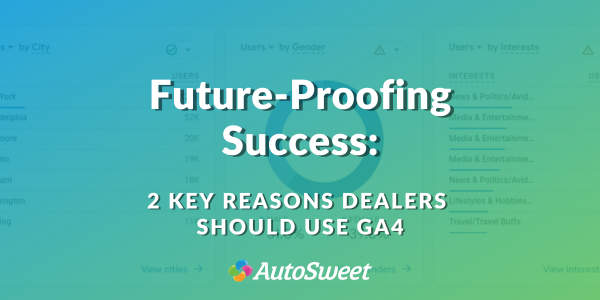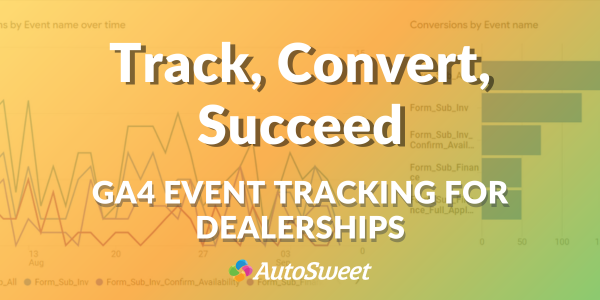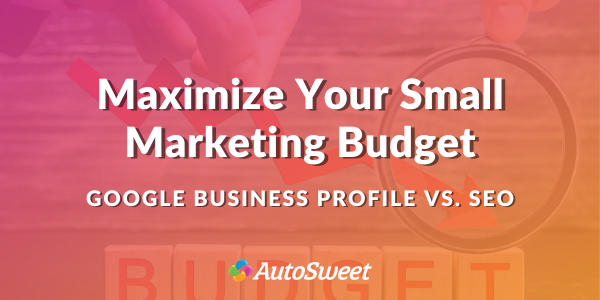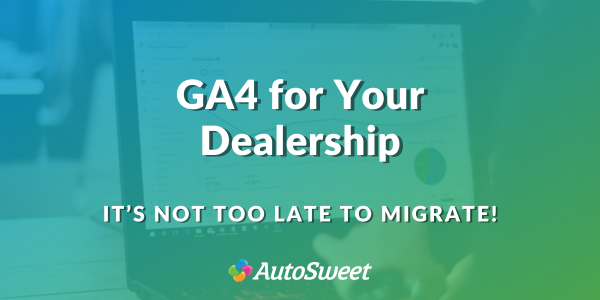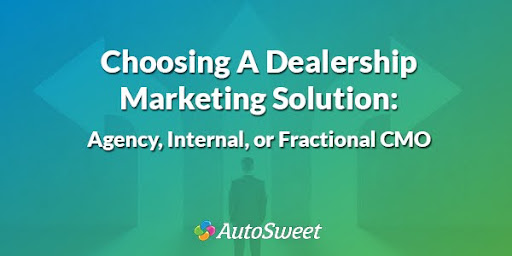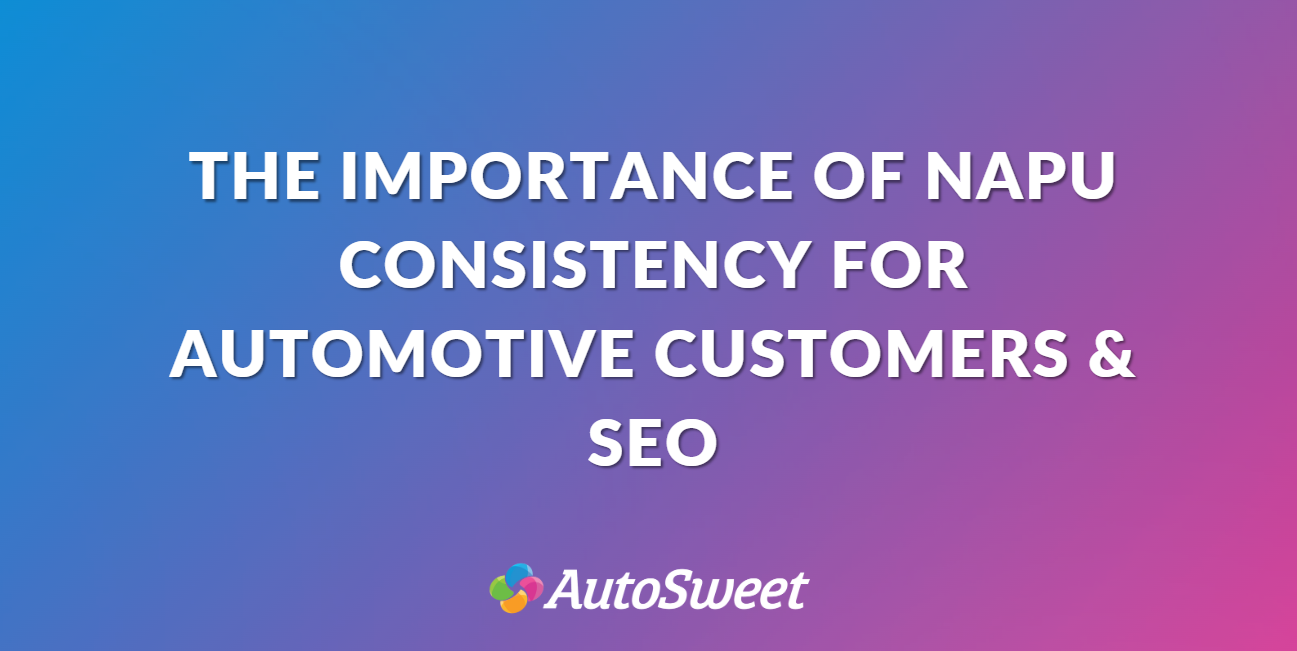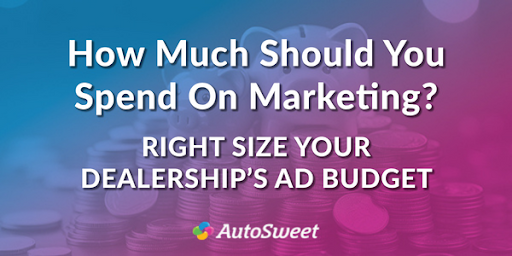So, you want to advertise on Google but think it will break the bank? It’s estimated that Google has more than 270 million unique visitors annually and as many as 5 billion searches a day.
Given that volume, it’s easy to see why some auto dealers think it’s too expensive to cut through the clutter. But there are cost-effective ways to succeed in this critical advertising channel by reaching ready-to-buy customers. The secret is in the search.
About Google Ads and Cost-Per-Click
While SEO and Facebook are good for driving top-of-funnel leads and other branding efforts, Google Ads are a fantastic way to get messages in front of an ideal, ready-to-buy audience further down the sales funnel.
Companies pay to have Google Ads displayed to customers searching for relevant terms on Google Search and Maps. Using a monthly ad campaign, companies can set a spending cap on Google Ads and define a local target audience. Ad rates are typically set on a cost-per-click (CPC) basis.
When evaluating campaign success, it’s important to have industry benchmarks for comparison.
With that in mind, here are the average key performance metrics of Google Ad Campaigns for automotive:
- $2.46 average cost per click (CPC) for search ads
- 4% average click-through rate (CTR) for search ads
- 6.03% average conversion rate
These are good guidelines for knowing how well your campaigns are performing in Google Ads. However, keep in mind that this will vary depending on your location and the competitiveness of your market.
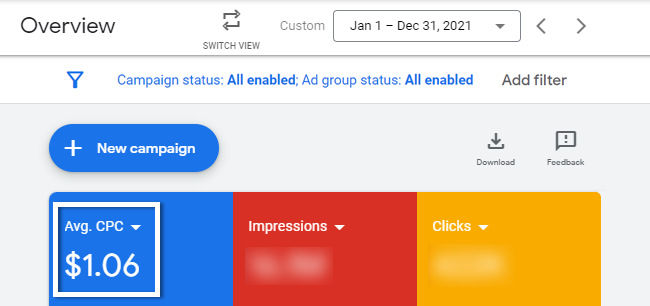
It also will depend on your strategy. With the right Google Ads strategy, you can do more with less. In fact, AutoSweet’s Google Ads dealership partners saw an average CPC of only $1.06 in 2021. This is less than half the cost of the average CPC in the auto industry!
Now, you may be thinking, how much does CPC really matter when the difference is only around $1 per click?
It matters a lot, especially when your budget is limited. You are essentially able to get twice as many leads for the same amount of money as your competitors.
This is because, assuming equal budgets and conversion rates, a lower overall CPC leads to more clicks for the same amount of money. And, with more clicks and the same conversion rate, you get more leads for the same amount of money as well.
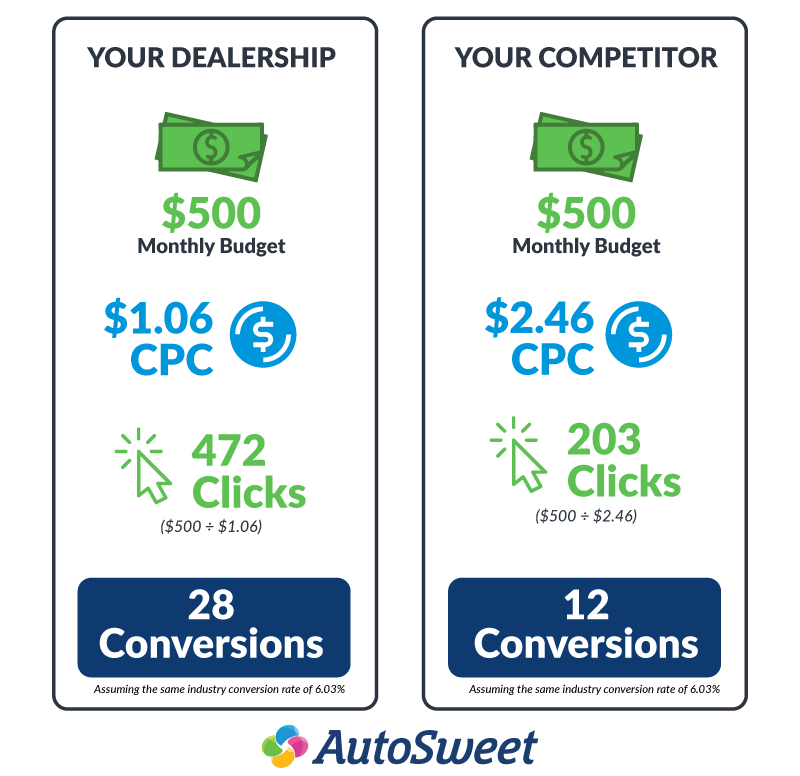
But, getting a lower CPC isn’t easy. It takes a solid Google Ads strategy to get these results.
How Dealers Can Do More For Less with Google Ads
The truth is, you can be effective on Google with a modest budget. For just a few hundred dollars, you can target your ideal customer at around $1 CPC (or even less in some cases). It’s all about the keywords.
Broader keywords are usually more competitive (meaning the field is more crowded) and therefore usually more expensive.
- Dealers can waste budget dollars on broader search terms because customers using broad search terms are usually not ready to buy (they’re still researching)
- Additionally, keywords that are more specific to what the searcher is looking for lead to a higher click-through rate on your ads
- Higher CTR improves your ad quality score which also drives costs down (Google charges a higher amount for lower quality ads)
For example, if you aren’t sure what vehicle make you’re interested in yet, your generic search for “Best Honda Cars” might turn up thousands of results.
But, if you search for “Cosmic Blue 2018 Honda Civic” you’ve narrowed your search much more specifically. This will yield results that are closer to what you’re looking for. These longer and more specific search terms are known in the industry as “long-tail keywords.”
What’s the takeaway?
Dealers are better off spending their ad dollars on Google by bidding on these long-tail keywords.
Not just because long-tail keywords are less expensive, but because customers searching with specific terms are more likely to buy. They’re lower in the sales funnel.
Our customer searching for a Cosmic Blue 2018 Honda Civic knows exactly what they’re looking for, and they want to find the inventory that meets their search because they’re likely near a purchase. These are the low-funnel searches from the high-quality leads a dealer needs.
It’s a win-win for dealers. You get higher-quality leads at a lower price than the competition.
But, it’s a lot of work to manually put these long-tail ads together. That’s why AutoSweet built our Google Ads strategy for dealers on automating long-tail keyword bids based on current dealer inventory.
How AutoSweet Automates Better Keyword Bids for Dealerships
As a certified Google Partner, AutoSweet’s digital marketing consultants are experts at netting high-quality, low-funnel leads with Google Ads.
And, we automate the ad creation process for you:
- We use your dealership inventory to create custom inventory ads for your vehicles
- We set up Google Ads to show your inventory automatically for all relevant long-tail vehicle searches in your area
- This drives costs down and leads to more conversions
And of course, your results are always accessible 24/7 through our custom reporting dashboard.
Ready to Incorporate Google Ads into Your Marketing Plan?
Schedule a free strategy session with an AutoSweet digital marketing consultant and learn how you can get the most out of Google Ads for your dealership.
